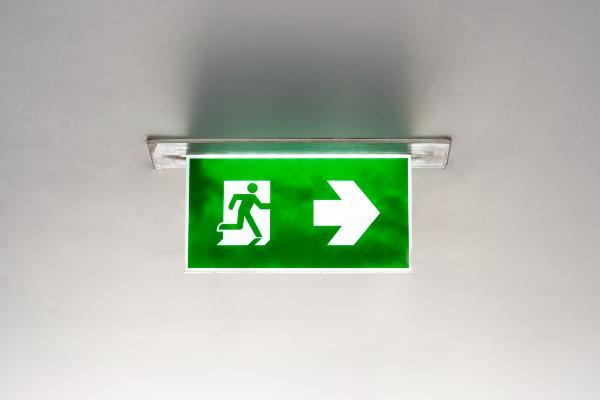Ensuring safety in the workplace is a paramount responsibility for employers, and among the various safety measures, the role of a fire warden stands out. Fire wardens are crucial for maintaining a safe environment, ready to act in the event of a fire emergency. This blog will delve into whether having a fire warden is a legal requirement in Ireland, how many fire wardens are needed, and the essential responsibilities they hold.
Is it a Legal Requirement to Have a Fire Warden in the Workplace?
In Ireland, having fire wardens in the workplace is indeed a legal requirement under various health and safety regulations. The primary legislation governing workplace fire safety is the Safety, Health and Welfare at Work Act 2005. This Act requires employers to manage and conduct their work activities in such a way as to ensure the safety, health, and welfare of employees.
Specifically, employers must assess all risks, including fire risks, and implement appropriate safety measures. Part of this obligation involves designating responsible individuals, such as fire wardens, to oversee fire safety procedures and ensure the effective implementation of fire safety plans.
Additionally, the Fire Services Acts 1981 and 2003 outline general fire safety obligations and the need for fire safety management in workplaces, further reinforcing the requirement for fire wardens.
How Many Fire Wardens Are Required?
The number of fire wardens needed in a workplace depends on several factors, including the size of the premises, the number of employees, the layout of the building, and the specific fire risks present. While there is no one-size-fits-all answer, some general guidelines can help determine the appropriate number:
- Small Workplaces: In smaller workplaces, at least one fire warden is typically required. However, it is advisable to have additional wardens to cover different shifts and ensure that a trained person is always available.
- Medium to Large Workplaces: As the number of employees and the size of the workplace increase, so does the need for more fire wardens. A common guideline is to have one fire warden for every 50 employees. Large buildings with multiple floors or complex layouts may need more wardens to ensure full coverage.
- High-Risk Environments: Workplaces with higher risks, such as factories, laboratories, or chemical plants, may need more fire wardens. These environments often require specialised training for fire wardens to handle specific hazards effectively.
Employers should have a comprehensive fire risk assessment carried out to determine the appropriate number of fire wardens for their specific situation. This assessment should consider factors like evacuation routes, the presence of vulnerable individuals, and the nature of the work being performed.
Responsibilities of Fire Wardens
Fire wardens in this country have several critical responsibilities, both in preventing fires and responding to emergencies. Their duties typically include:
- Fire Prevention: Fire wardens are responsible for identifying potential fire hazards and ensuring that fire safety protocols are followed. This includes regular checks of fire exits, alarms, and firefighting equipment.
- Emergency Planning: They help develop and maintain the workplace's fire emergency plan, ensuring all employees are familiar with evacuation procedures and assembly points.
- Training and Drills: Fire wardens conduct regular fire drills and training sessions to ensure all staff members know how to respond in the event of a fire. They also educate employees on the use of fire extinguishers and other safety equipment.
- Evacuation Management: In the event of a fire, fire wardens take charge of evacuating the building, ensuring that everyone leaves safely and promptly. They guide employees to designated assembly points and perform headcounts to account for all personnel.
- Coordination with Emergency Services: Fire wardens are responsible for liaising with emergency services, providing them with crucial information about the building layout, potential hazards, and any missing persons.
- Post-Incident Review: After an incident, fire wardens participate in debriefs to review the response and improve future emergency plans.
SafeHands can help
Fire wardens are indispensable in maintaining workplace safety in Ireland, ensuring that all employees are prepared and protected in the event of a fire. Given the legal requirements and the critical role they play, employers must have their specific needs assessed to determine the right number of fire wardens and ensure they are adequately trained. By doing so, they create a safer work environment and enhance their overall emergency preparedness.
SafeHands Health & Safety Solutions can assist in meeting these fire safety requirements by providing comprehensive Fire Warden/Marshal Training and certification tailored to the specific needs of your workplace. Our expert trainers ensure that fire wardens are well-equipped with the knowledge and skills necessary to handle fire emergencies effectively, conduct thorough risk assessments, and lead fire prevention initiatives.
With SafeHands, employers can be confident that they have the correct number of fire wardens onsite and that they are fully prepared to safeguard the workplace and ensure compliance with all relevant safety regulations. Contact us on 01-7979836 or 0873823223, email info@safehands.ie or visit www.safehands.ie.

